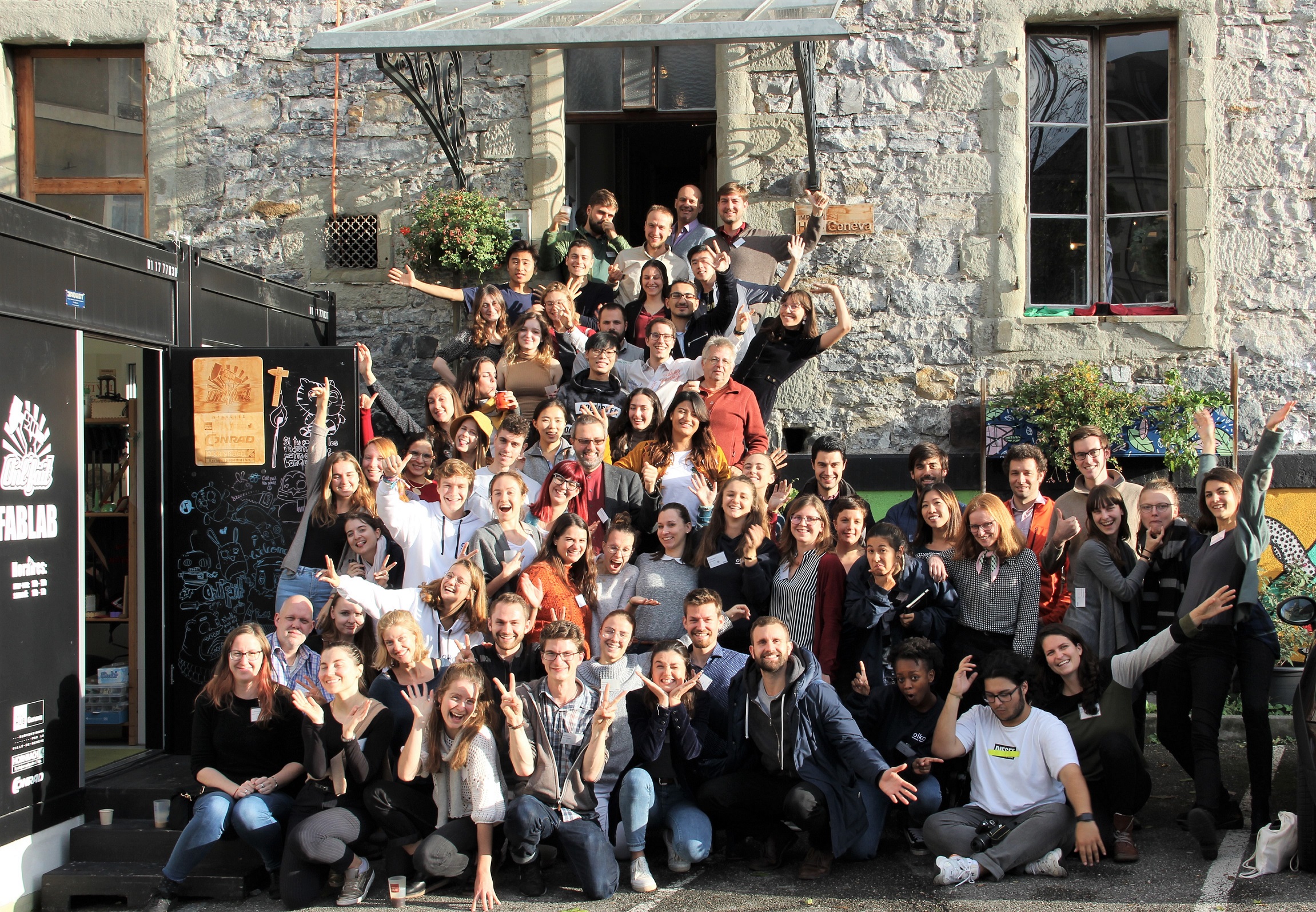
Commitments to halt climate change abound in politics, academia, business, and civil society. To bring forth genuine change and yield impactful results, however, lasting multi-stakeholder dialogues and new synergies across these different spheres are instrumental. So, in 2019, we decided to dedicate the oikos FutureLab, our annual international conference, to the topic of partnerships and focus on the key message of #ActingTogetherforSustainability.
The FutureLab conference brought together over 90 students, professors, entrepreneurs, and sustainability thought leaders in Geneva, Switzerland, on 1 and 2 November 2019. The first day of the FutureLab 2019 revolved around the topic of ‘partnerships for a sustainable world’, while the second day shifted attention towards ‘partnerships for changing economics and management education’. Through a mix of keynote talks, workshops, and panel discussions, the participants representing over 20 nationalities, examined sustainability challenges and opportunities, shared their innovative solutions, and drew blueprints for collective action.

Katherine Milligan, the Head of Gender and Diversity at Bamboo Capital Partners, opened the conference with her keynote speech. Katherine spoke about the importance of self-inquiry and shared stories of her own self-inquiry journey as well as the experiences of other social change leaders. “Self-inquiry”, Katherine explained, “is a process of self-examination and reflection undertaken with an explicit goal of increasing self-awareness, reconnecting with purpose and joy, healing from past trauma, and shifting towards healthier patterns of behavior, especially in regard to your inner-personal relationship.” She emphasized how anger and jealousy undermine modern partnerships and how overcoming these flaws through self-inquiry can create stronger bonds and networks for change. “Useful skills that leaders cultivate through the self-inquiry practice include deep listening, patience, compassion, clarity, and a systems view of how various issues, people, and partners affect each other.” – Katherine said.
Universities worldwide pride themselves in educating future change agents and opinion-makers, yet practices like self-inquiry, that can help young people become better, healthier, and more sustainable leaders, is absent in formal curricula. As Ivo Master, CEO of the Academy of Business in Society, noted the current model of universities was thought out even before the first industrial revolution. “The only way for universities to change is through partnerships. They will never do it from the insider. Impossible.” – Ivo said. For him, the lack of change in higher education institutions stems from their market-oriented approaches. The change, therefore, is only possible through student action and by bringing forth the students’ vision for what kind of life they want to lead and what kind of skills they need to acquire to fulfill their ideal. “To bring change”, Ivo argued, “students need to influence not only universities but stakeholders of universities – employers, governments, cities – as well.”
A number of parallel workshops at the FutureLab explored specific strategies, actions, and tools necessary for engaging different stakeholders and making progress towards a more just and sustainable world. With Fabienne Lang of Climate-KIC, the participants gained insights on how to organize Climathon, a Hackathon that connects government and citizens with an aim to design solutions to different climate problems in urban areas. Giuseppe Ugazio and Thomas Maillart of the University of Geneva, teamed up with the participants to explore what the syllabus of a university course on designing a hackathon could look like.

The participants also learned about the importance of embracing diverse solutions in the fight against climate change in the Climate Dialogue workshop led by Elise Buckle of SDG Lab Geneva. Michel de Kemmeter, CEO of Wise Holding, shared a powerful lesson about building lasting, strong, and resilient partnerships. “Future values will focus more on humanity and partnerships need to be meaningful” – said Michel. “Keep your contacts agile. Be open. Let some stakeholders leave and allow others to join. Talk about your project with everybody.” – he advised.
The participants transformed their crazy business ideas into business plans with Christian Bärtsch, oikos alumnus and CEO of Essento, a start-up that provides a sustainable source of animal protein in the form of insects. They also explored what sustainable development leadership entails with Suzanne Feinmann of the World Business Council on Sustainable Development, and looked into partnership opportunities between local oikos chapters and Tomorrow, a sustainable bank account for smartphones, with Kaspar Wehrhahn.
A workshop on Positive Impact Rating for Business Schools explored the importance of creating a new ranking model to influence university culture and behavior and shift their focus from being the best in the world to being the best for the world. The participants learned about the new PIR ranking system and gained knowledge on how to evaluate their own universities or business schools with the PIR criteria. With Simon Zysset and Valerian Stadler of WWF Switzerland, the participants explored the role of education in systemic change and examined WWF Switzerland’s efforts in curriculum transformation.
“Curriculum Reform NOW”, a workshop, designed by Lenka Kepkova, oikos Curriculum Strategy Manager and J.Christopher Proctor, our Curriculum Research Manager, discussed the main building blocks on which economics and management education for the 21st century could be built on. The participants reflected on the key principles for a new economy and applied them to concrete sustainability challenges. They also developed strategies for shaping the curriculum at their universities.
Our members shared their critical views and expressed their own opinion on the myriad of topics raised at the conference. They also showcased their own projects at the FutureLab Impact Fair and took a chance to network and build new connections with our speakers and fellow students from across the world.
The FutureLab 2019 was a reminder that seeking powerful solutions and acting together is the only way forward to create a more sustainable and resilient world. In the words of Henry Ford “Coming together is a beginning; keeping together is progress; working together is success.”
To learn more about our program and speakers, visit the FutureLab webpage




